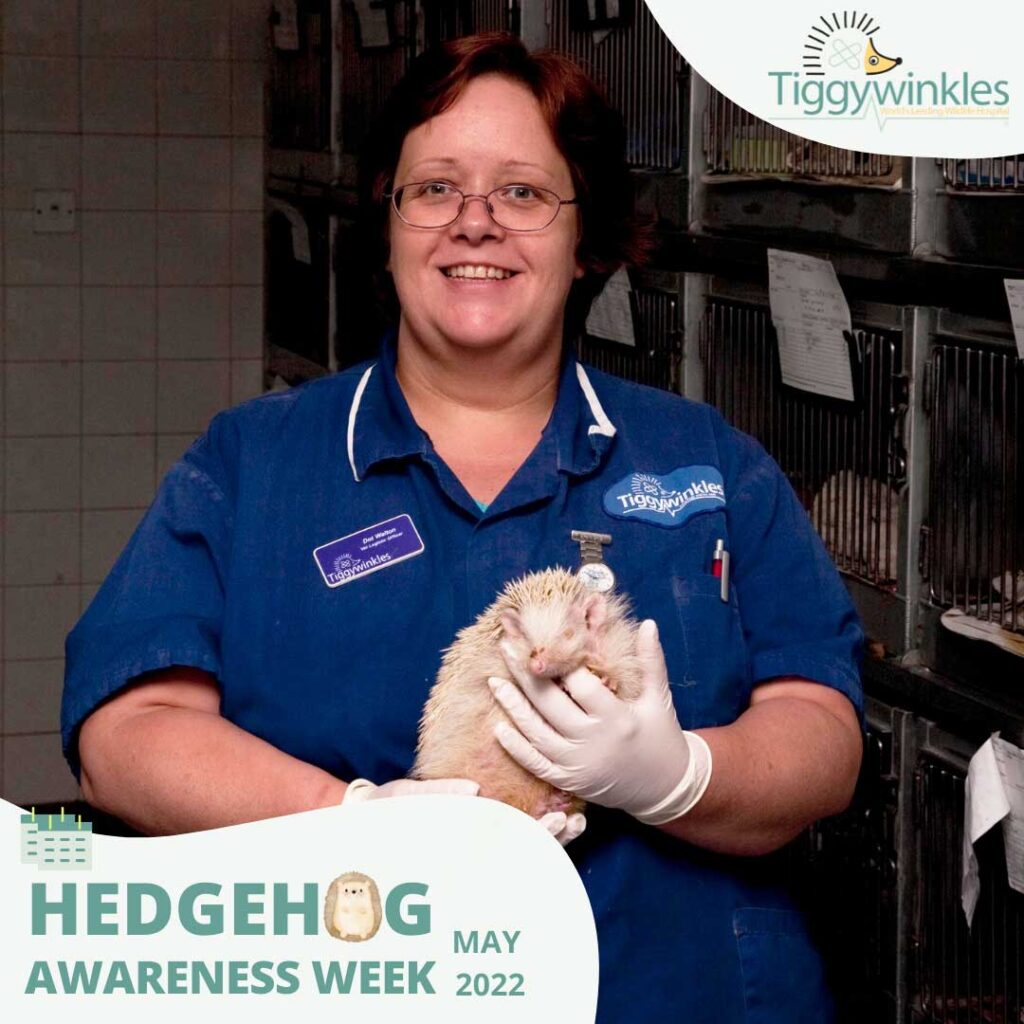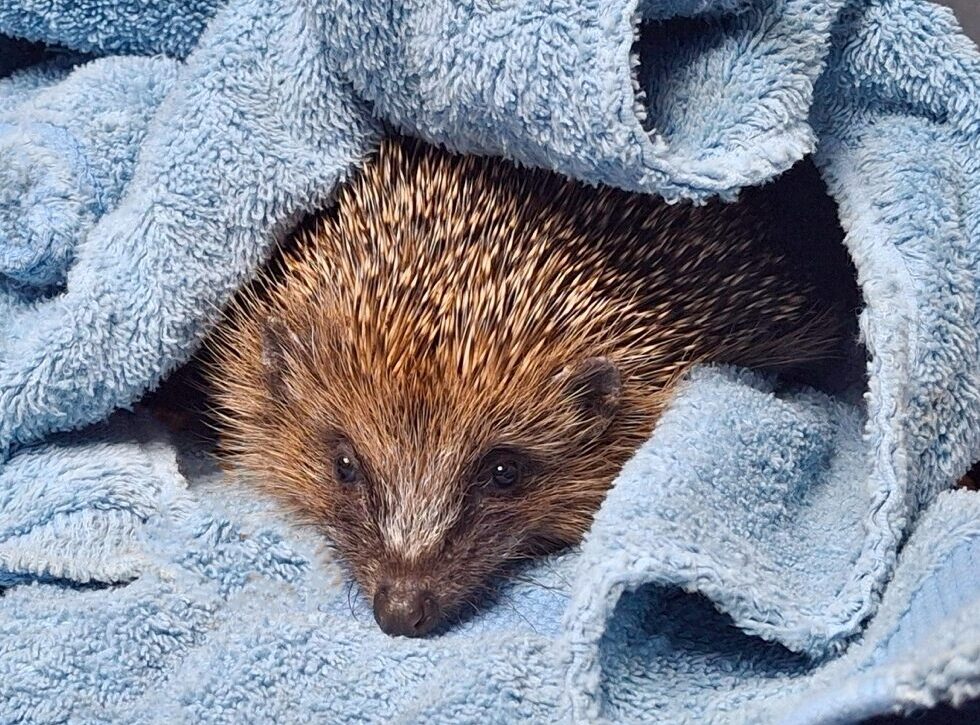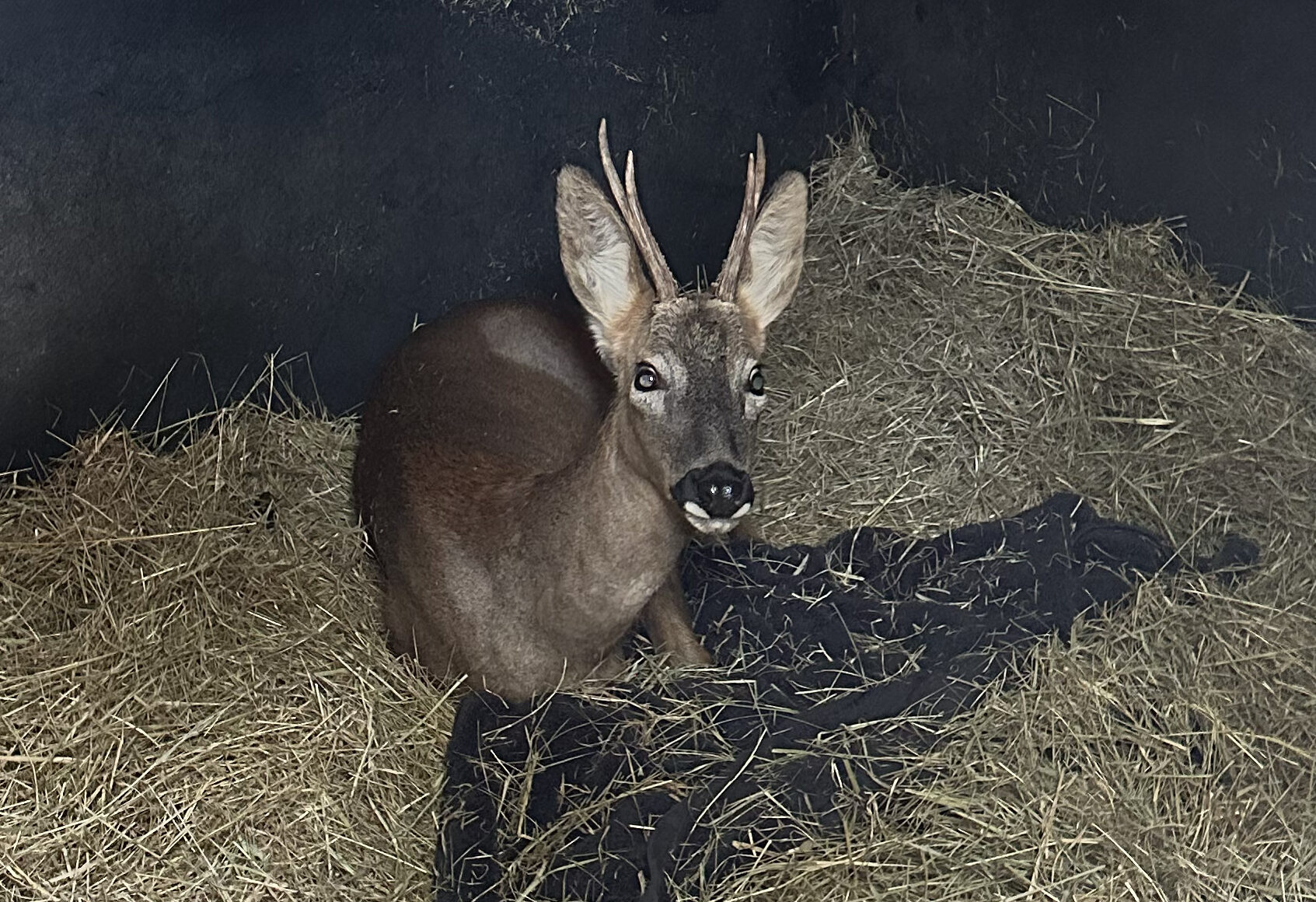24-Hour Emergency Helpline 01844 292292

Home / News / General News / A day in the life of the Hedgehog Room
A day in the life of the Hedgehog Room
When I enter the Hedgehog Room, I start first at the heated bank, as the most poorly animals are here.

I look at each Hedgehog’s admittance card, which has all the information on the patient since its admittance telling me what is wrong with it and what medication has been prescribed by the vet.
I will then weigh the Hedgehog and check this against its card, to see if it is putting on or losing weight. Also daily, the students on cleaning the cages will note how much each hedgehog has eaten and how much water it has drunk. Then we can effectively monitor each hedgehog’s progress.
If the hedgehog has come in with a wound or injury I may need to unroll the hedgehog to check it. This is done by gently bouncing the animal in my hands to make it unroll (‘The Archers’ theme tune I find works best!). With one hand under its chin and the other under its back end, I hold the animal open against myself, so that the underside and legs can be checked over, this also leads to the strange ‘tattoo’ marks left my midriff!
If the wounds are infected I then flush them, but if I have any concerns I will write the animals name and admittance number in the procedure book so that it can be checked thoroughly by the vet under General anaesthetic, if necessary. Any medication or fluids will then be given to the animal (fluids if they are not eating, losing weight or if they are dehydrated)
A hedgehog with leg, pelvis or spinal injuries will also be checked on walking. Those with movement problems may be put on the hydrotherapy list, as swimming is a very good exercise to build up muscle mobility.
I will then check each hedgehog in this manner working my way through the room.
If a Hog has flaky skin or is losing any spines it will need to be checked for both ring worm (a fungal infection) and mites, very small organisms that live on or in skin, also known as “walking dandruff”. Both of these can be identified in the lab and easily treated. These animals are last of the daily list of treatment and are kept away from other hedgehogs to prevent the spread of these problems.
Another common problem we look for is lungworm – especially bad in wet Spring and Autumn. As soon as possible after admittance a faecal sample is taken and checked in the lab for worms and eggs. If a hedgehog has lungworm it may have a bad cough and its droppings may be very smelly and bright green. This can be fatal. Treatment needs to be started straight away.
Easter is when people start their gardening year, and this is when we get many gardening related injuries to hedgehogs. Lawn mowers and strimmers both cause problems, but so can compost heaps, bonfires and people with garden forks!
In June the hedgehog babies (urchins) begin to come in, again often due to disturbed nests in compost heaps, bonfires and under hedges. If these are not injured, babies usually go out to our foster mums. They are very time consuming. Once weaned, they come back to the hospital and when up to weight (dependant on time of year – closer to winter the heavier they need to be). They are released in pre-checked safe gardens.
In late Autumn we start to get in many hogs we mark as TSTH (Too small to hibernate). Often there is nothing wrong with these animals except that they do not have the fat reserves to safely hibernate and, weather dependant, we may have them in the hospital for 4-5 months. At Christmas we may have over 400 Hedgehogs in the hospital which is a lot of daily checks and an awful lot of dog food!
When patients are recovered they will be put outside to acclimatise before release in the Spring. Those with permanent problems such as eye loss or damage, loss of limbs or permanent injuries, will go out to the Visitor Centre where they are in a protected environment and regularly checked and can live their lives safely.
Hedgehogs are not the cleanest animals in the world but they do have their own personalities, some will huff and puff and try to spike you, others seem to watch everything you do! If you find a Hedgehog be sure to bring it to us, don’t worry about fleas as they are host specific so won’t live on us or cats and dogs.
Dot – Veterinary Laboratory Officer
Make a donation
By donating to Tiggywinkles, you will be helping us provide life-saving treatment and care to all species of British Wildlife.




